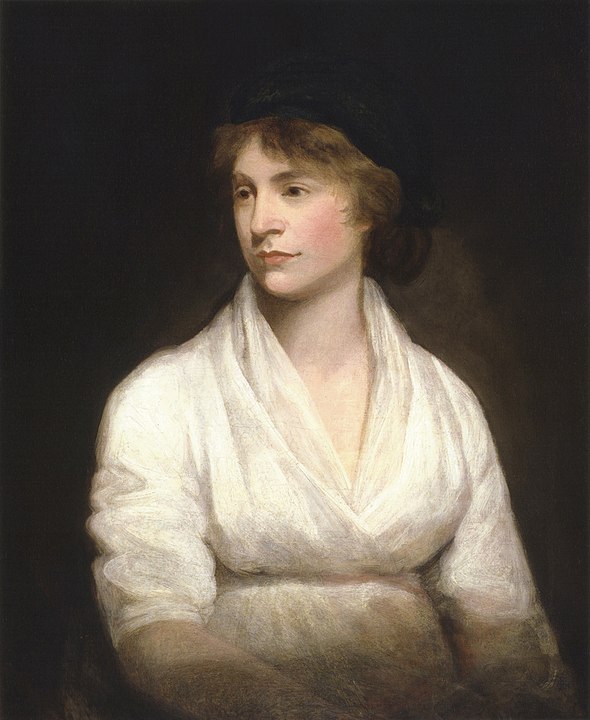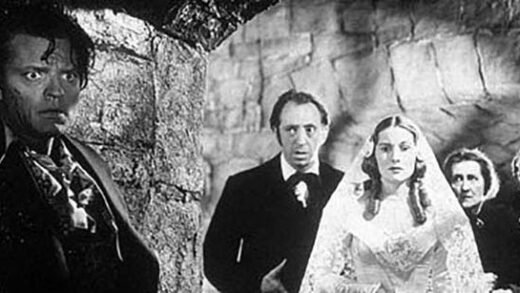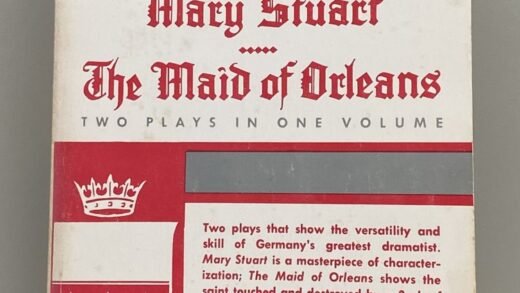Black History month is mostly continuing throughout March and into April. March is Women’s History month, which always reminds me of de Beauvoir’s comment in the “Introduction” to the Second Sex, where she asks if this is possible—namely, for women to have some collective history. In part, reading Mary Shelley’s The Last Man was an acknowledgement of that …
3/1
— Law and Order: Chris Noth episodes, no Sam Waterson.
— Du Bois, Black Reconstruction in America, 10 pp.
3/2
— Alexander, The New Jim Crow, 45 pp.: Never again will I brook “back the blue,” although to be honest I’d always known it was crypto-racism.
3/3
— Murder, My Sweet (1944): Probably I’ve seen a Dick Powell film before. I think I’ve seen 42nd Street (1933). TMC showing. Honestly I wasn’t that impressed by Powell, although I admit I judge him against other Spades, the comparison of which is not quite fair. But the film stands out because of the scene where Spade has been kidnapped and drugged.
— Kathryn Lasky, A Time For Courage: The Suffragette Diary of Kathleen Bowen, 30 pp.: While Lucian was reading The Hope Chest by Karen Schwabach, I got this for him from the local library, thinking he’d might want to know more. Such did not turn out to be the case, as that chapter concerning parent’s good intentions always reads. So I read it instead.
3/4
— Lone Wolf and Cub: Sword of Vengeance (1972): Hadn’t seen this before. Nor read the Frank Miller edition of 1987. Why hadn’t I seen this before? The samurai films of the 1970s I’ve always found somewhat unimpressive. They all seem contrived in comparison to the 1960 heydays of Kurosawa, Okamoto, and others. But this film managed not to get lost in color.
— Lasky, 30 pp.: The conditions of the protesters’ imprisonment is quite disappointing but should not be surprising.
3/5
— John Wick 2 (2017): Like everyone else, I was dazzled by the first film. This film not so much.
— Finished Lasky

3/6 (in the Poconos for skiing)
— Monsters, Inc. (2001): Such a clever conceit.
— NYRB on Wollstonecraft, Shelley
3/7 (arrived back that night, totally exhausted)
— Star Wars, Episode 1: Phantom Menace (1999), first hour:
— Age of Ultron, Marvel story arc: Is it a dirty secret that I read comic books? This medium was a formative pat of my intellectual formation, mainly because of the inscrutability of the word uncanny.
3/8
— Finished Age of Ultron
3/9
— Du Bois, 10 pp.
3/10
— NYRB on religious experience and angels; Frank Auerbach, and a book on MLK and Malcolm X
— Buck And the Preacher (1972): Sidney Poitier directed this film set in the post Civil War period, about newly freed slave who sought to leave the South only to be pursued by those who wanted them to remain on the plantation. Also stars Harry Belafonte and Ruby Dee. Harry Belafonte’s character is undoubtedly the star, as he channels “The Preacher.”
3/11
— Finished SW: Phantom Menace
— Du Bois, 10 pp.
3/12
— Du Bois, 15 pp.
— Jonathan Kozol, The Shame of the Nation, 38 pp.: In the 1990s Kozol came to my alma mater to speak. At that point the signs of the devolution of the civil rights era gains in equality in public education were just appearing. A process kept up that has led to the present, in which separate and unequal is the law of the land.
— Mary Shelley, The Last Man, Introduction, 3 pp.:
— Tolstoy, 8 pp.
— Star Trek (1979), 40 minutes
3/13
— Shelley, 10 pp.
3/14
— Shelley, 10 pp.
3/15
— The Man Who Knew Too Much (1956): Directed by Alfred Hitchcock. Watched la plupart but not all of it. The first time I saw this I could not stand Doris Day (not Dorothy Day, an association perhaps I am the only person making) and disliked the film because of it. This time it was very different. I paid more attention to Jimmy Stewart’s character and its resonance with the other significant characters that he played for Hitchcock (Rear Window, Vertigo).
3/18
— Contact (1997): Watching this film in 2021 makes it about Jodie Foster and Matthew McConnaughey’s respective careers as actors/actresses. As well, the dramatic changes in our globe as a result of the internet … and how quaint the limitations of that time. Neither Foster’s nor McConnaughey’s career have gone extraordinarily well after since then, although Contact was clearly a huge project that was probably expected to have a greater effect than it did.
— NYRB on church sanctuary
— Shelley, 15 pp.
3/19
— Harry Potter and the Sorcerer’s Stone (2001)
3/20
— Shelley, 25 pp.
— Kozol, 20 pp.
3/21
— Shelley, 20 pp.
3/24
— Kozel, 50 pp.
— Anne Case & Angus Deaton, Deaths of Despair and the Future of Capitalism, 10 pp.
3/26
— NYRB on Reformation textbook, Malcolm X
3/27
— NYRB on Rosa Dugdale (IRA supporting Vermeer thief), Nicholson Baker’s new book on secrets
— Harry Potter and the Goblet of Fire (2005): Eh …
3/28
— NYRB on Smith’s stratigraphic maps of England, Pirandello’s obsession with conflict, and the strangely misreported tyranny of the Ugandan tyrant Museveni
— Shelley, 15 pp.
— Kozol, 25 pp.
— Pat Garrett and Billy the Kid (1973), first 40 minutes. Young cinephilic men are expected to go through a Peckinpah phase, I believe. Other than gazing on Kris Kristofferson’s virile visage, there are few pleasures to be had from this film. It is a reminder of how strange it is that James Coburn had a career as an actor. Talk about a one-trick pony.
3/29
— Accident (1967): Directed by Joseph Loseph, written by Harold Pinter, and starring Dirk Bogarde, of whom I am currently enjoying a review of his work. The actress in the still below, Jacqueline Sassard, plays a fairly minor role. The major role is played by Dirk Bogarde’s character, an Oxford philosophy don, no less. Like The Go-Between, the film at least begins at the ending, then returns to the past, then finally returns to the present.
3/30
— Enter the Dragon (1973): A very pointed entry on bad movie watching is eventually to be published. Watching this film would fall into this category nicely.
3/31
— Hunt for Red October (1990): Between this film and Glengarry Glen Ross (1992) we were all very impressed by Alec Baldwin back in the late 1980s/early 1990s. Yet in this film actually I think Scott Glenn has the most interesting character. Not even Sean Connery is actually that dimensional. Directed by John McTiernan, notable for having also directed the original Die Hard and Predator. McTiernan is a dubious personage.



